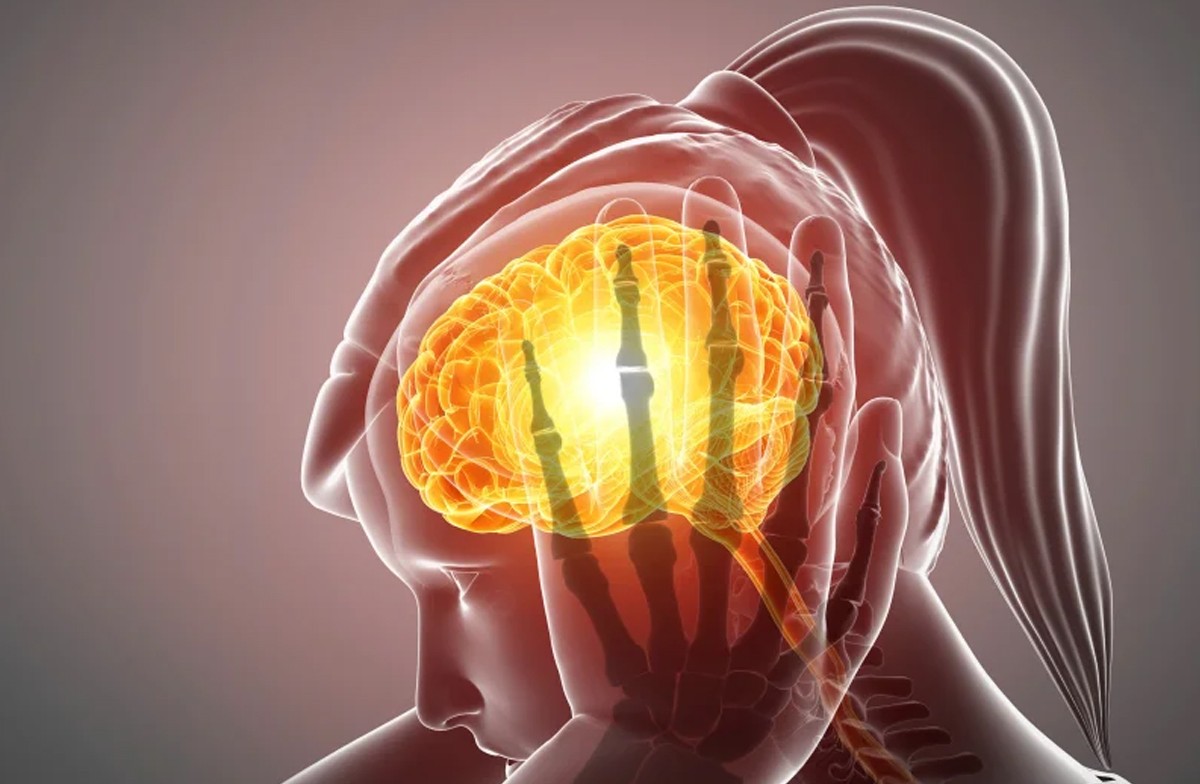Migraine
Migraine is a neurological disorder characterized by recurrent episodes of severe headaches, usually on one side of the head. It is often accompanied by other symptoms such as nausea, vomiting, and sensitivity to light and sound. Migraines can last for hours or even days and can significantly impact a person's quality of life.
In conventional medicine, the exact causes of migraines are not fully understood, but they are believed to be related to changes in the brain and nervous system. Certain triggers, such as stress, hormonal changes, certain foods, and environmental factors, can also contribute to the onset of a migraine.
Migraine is a chronic neurological condition that can be managed but not completely cured. Treatment for migraines usually involves a combination of medication and lifestyle changes. Over-the-counter pain relievers like ibuprofen or aspirin may be effective for mild to moderate migraines. For more severe migraines, prescription medications like triptans may be necessary. Lifestyle changes such as getting regular exercise, reducing stress, and avoiding triggers may also be helpful in managing migraines.
In natural health, migraine headaches are believed to be caused by an imbalance of Qi and blood in the body, which can be the result of various factors such as emotional stress, dietary imbalances, and environmental factors.
Diagnosis in natural health is based on a detailed assessment of the individual's symptoms, pulse, tongue, and other diagnostic techniques. Migraines are often attributed to several underlying patterns of disharmony, including:
- Liver Yang Rising: This occurs when there is excess heat and energy in the Liver, which can lead to headaches, dizziness, and irritability.
- Liver Wind: This is characterized by sudden onset of migraine symptoms, such as intense headaches accompanied by nausea, vomiting, and sensitivity to light and sound.
- Liver Fire: This pattern is associated with severe and throbbing headaches that are often accompanied by redness of the eyes, irritability, and anger.
- Blood Stasis: This pattern is characterized by headaches that are fixed and severe, and often associated with a feeling of pressure or fullness in the head.
Natural health treatment for migraines may involve a combination of acupuncture, herbal medicine, dietary modifications, and lifestyle changes. Acupuncture is believed to stimulate the flow of Qi and blood, helping to reduce pain and other symptoms. Herbal medicine may be used to balance the body's energy and address any underlying patterns of disharmony. Dietary modifications may involve avoiding foods and drinks that can trigger migraines, such as caffeine, alcohol, and processed foods. Lifestyle changes may include stress reduction techniques like meditation, qi gong, or yoga.
In Person With Heshoutang Natural Health Members
With Heshoutang Natural Health Online Members
Fill Out the Questionnaire by yourself
In natural health, dietary modifications can play an important role in managing migraines. The goal of dietary therapy in natural health is to help balance the body's energy and address any underlying patterns of disharmony that may be contributing to the migraine.
Foods that are generally considered to be good for migraines in natural health include:
- Cooling foods: These are foods that help to clear heat and reduce inflammation in the body, which can be beneficial for migraines. Examples include cucumber, celery, watermelon, and mung bean.
- Yin-nourishing foods: These are foods that help to nourish the body's Yin energy, which can be beneficial for migraines that are associated with Liver Yang rising. Examples include tofu, soy milk, and honey.
- Blood-nourishing foods: These are foods that help to nourish the body's Blood energy, which can be beneficial for migraines that are associated with Blood stasis. Examples include dark leafy greens, red meat, and bone broth.
- Foods rich in magnesium: Magnesium is an important mineral that can help to reduce the frequency and severity of migraines. Foods that are rich in magnesium include leafy green vegetables, nuts and seeds, whole grains, and dark chocolate.
Foods and drinks that should be avoided or minimized in natural health for migraines include:
- Spicy and pungent foods: These can contribute to Liver Yang rising and exacerbate migraines.
- Greasy and fatty foods: These can contribute to Dampness in the body, which can worsen migraines.
- Alcohol and caffeine: These can trigger migraines in some people, and should be avoided or minimized.
When you subscribe to the blog, we will send you an e-mail when there are new updates on the site so you wouldn't miss them.














Comments